The last mile of care – UNFPA staff go above and beyond to reach women and girls
Thanks to supporters like you, we are able to reach women and girls in some of the most remote places around the world with care. Our skilled healthcare workers travel via boat, camel, and even scaling cliffsides to distribute lifesaving care – because when we say that we will be there no matter what, we mean it.
Today, we’re highlighting the tireless efforts of some of our staff who go above and beyond each and every day for women and girls.
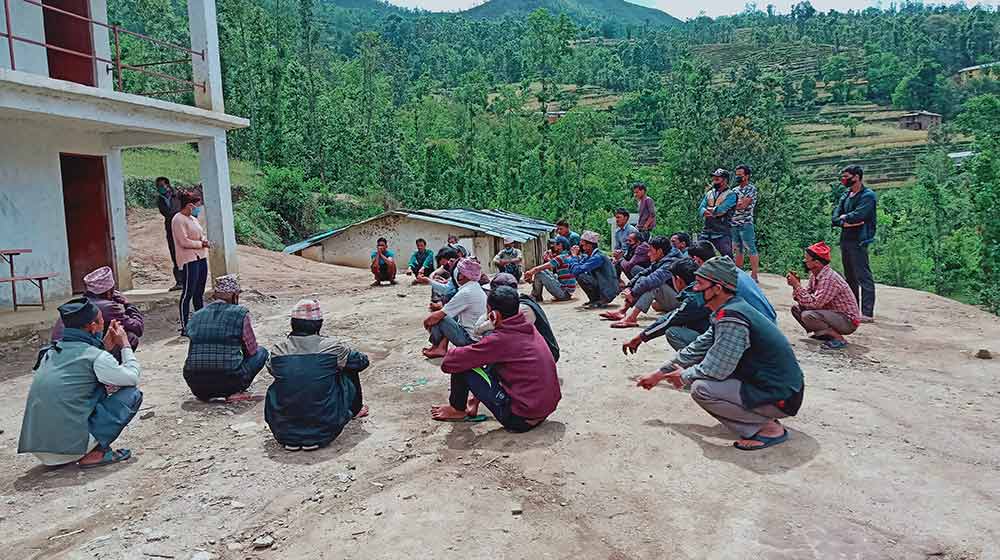
Walking through the clouds
In the mountainous regions of Nepal, UNFPA worker Kabita scales icy cliffsides and leaps over rushing waters in the Himalayan mountains. The mountains that she spends all day trekking through are so high that they’re laced with clouds – but still, Kabita does not relent in her efforts to deliver care.
“Many women are without family planning services. Forget services – they do not even have family planning information,” she shared with us.
She and her colleagues, known as visiting service providers, go to great lengths to deliver contraceptives to women in need and teach communities on family planning options. By helping women in remote areas plan out if and when they want to get pregnant, Kabita is helping to save lives and reduce maternal deaths.
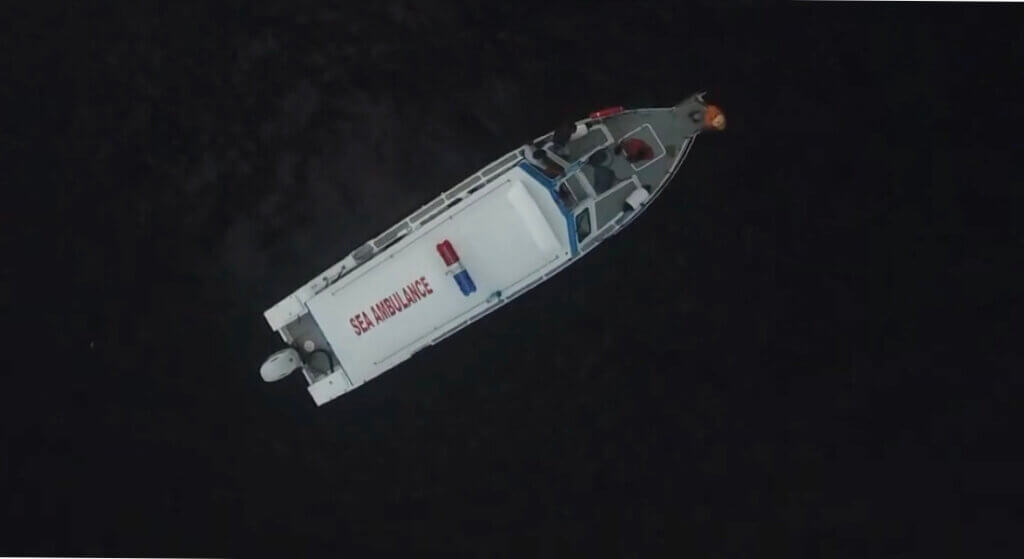
Soaring through the waves
In the areas that are not accessibly by land, such as the remote Solomon Islands, UNFPA healthcare workers are traversing rough waters to bring emergency care to women and girls. In Zanzibar, the “Afya Bora” ambulance has been launched to help bring pregnant women in small surrounding islands to hospitals on the mainland to receive emergency obstetric care.
Along the winding waterway of the Amazon River, the “Health Canoe” brings pregnant women from remote Indigenous communities to the Puerto El Carmen Health hospital when emergency strikes. Margarita, a leader and long-time health advocate in a remote village at the edge of the Amazon Rainforest, shared this with us about the recent improvements to reaching Indigenous women with care:
“The real achievement is the projects that benefit communities and give them more opportunities to access healthcare. But that will only be possible if we all work together.”
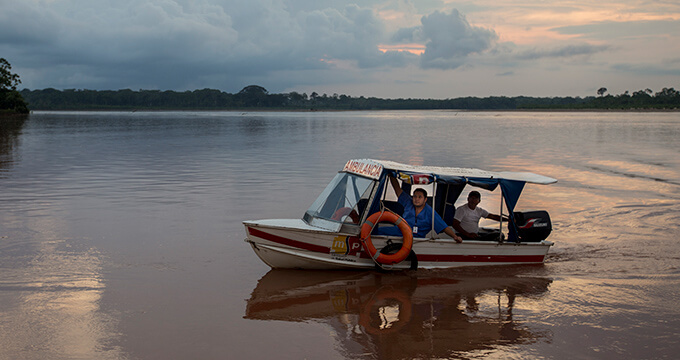
As the climate crisis worsens and extreme weather events such as typhoons become more common, these water ambulances are only growing more critical. Dr. Panisi, the only female obstetrician on the Solomon Islands, shared with us that “In places where there used to be roads, there are now rocks; the sea has broken the road.”
“Evacuating emergency obstetric cases from remote islands to Honiara during a climate crisis is a major challenge,” she continued.
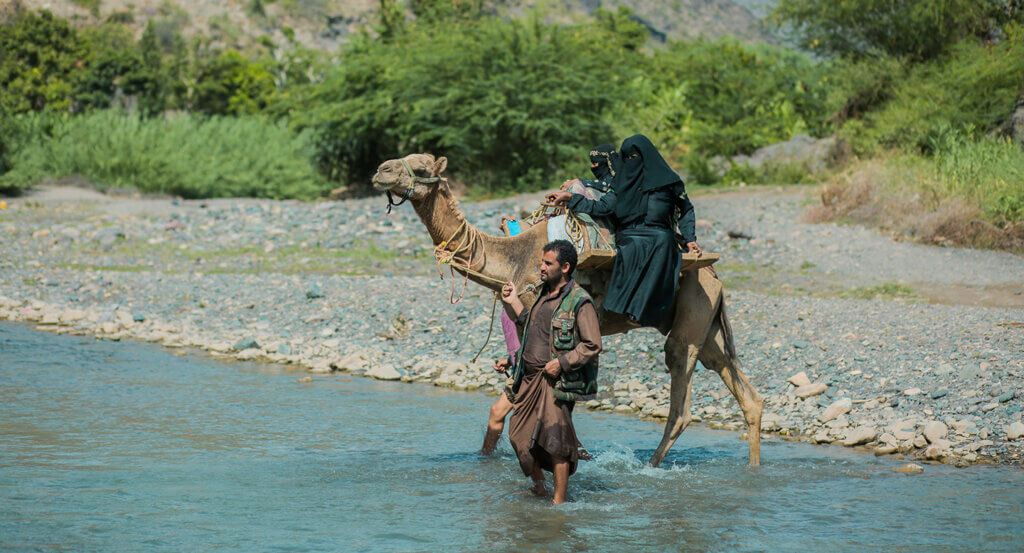
Traversing mountainous terrain
Even in places not linked by roads, we are working with local communities to make emergency reproductive care available to all. In war-torn Yemen, where a woman dies every two hours from childbirth, we have helped provide camel ambulances to help women from remote villages cross the mountainous terrain and reach hospitals.
These camel rides can take up to 7 hours and be incredibly painful for women who are in labor – but when the alternatives are either walking several miles on foot to reach the nearest health center or giving birth alone with no skilled birth attendants, these ambulances have become a lifeline to local communities.
In mountainous regions of the Dominican Republic, motorcycle ambulances help bring pregnant women to nearby care units, where they once had to walk to on foot. Lucía, a mother from the region, recounted that before the motorcycles, “To go to the hospital, I would walk out and have to sit down to rest because I got dizzy.”
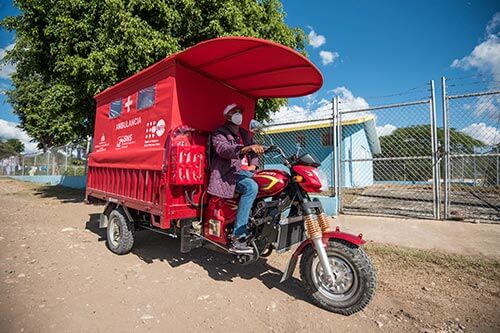
Reaching women and girls in crisis
In areas facing humanitarian emergencies, courageous UNFPA health professionals staff mobile health units to reach the people most in need of care with our aid.
In Gaza, where just three maternity hospitals remain even partially operational, we have set up a mobile unit to handle emergency obstetric cases to help support the strain on the collapsing healthcare system. In Sudan, where one year of civil war has brought 5 million people to the brink of famine, we have deployed 46 mobile health clinics to reach women and girls in need.
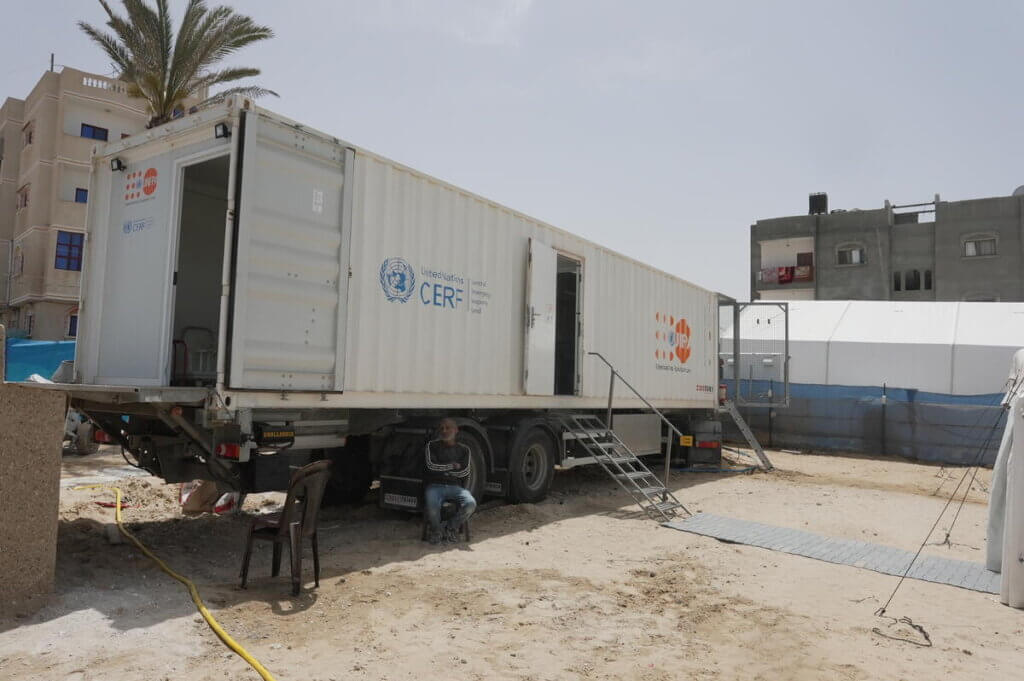
In Afghanistan, only 72 hours after the devastating earthquakes struck, our mobile health teams set up tents to deliver babies among the rubble. In Ukraine, mobile units arrived to treat women and children who were suffering under the crippling weight of war.
“When the war arrived in this area, the women and children tried to escape – from danger, hunger and the lack of medical services. As the war rages on, this mobile clinic is going to be very useful,” Dr. Filipova from Ukraine shared with us.
Without our mobile health units, women surviving through war and natural disasters would be left with reproductive health services out of reach. But thanks to our supporters, we can fill the gaps in moments of crisis and ensure that each and every woman and girl receives the care she needs, no matter what.
Thank you for helping to make our lifesaving care accessible to all. It’s because of this incredible community that we have been able to make a difference for women and girls around the globe. If you would like to further support this work, you can do so here.